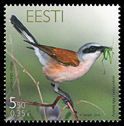THE populations of two once-abundant Welsh woodland bird species have fallen so dramatically they are now on an RSPB rare bird watch list, it has been announced. Numbers of the lesser spotted woodpecker Dendrocopos minor and willow tit Parus montanus have plummeted since the 1970s. According to the RSPB, willow tits have fallen in number by a huge 91% and the lesser spotted woodpecker – the smallest of the UK’s woodpeckers – has dropped by 76%.
Television wildlife personality Iolo Williams said it marked an alarming turnaround in the fortunes for the birds which had once flourished in Wales. He said: “I’ll tell you one thing, if you had told me 25–30 years ago these birds would be being looked at by the Rare Breeding Birds Panel, I would have laughed at you.From where I lived, in a three or four-mile walk, I could have found half a dozen pairs of lesser spotted woodpeckers, but now every single one has gone.”
The RSPB said the declines were extremely alarming, with the birds disappearing completely from counties where they were once found.
David Anning, RSPB Wales South and Mid Wales Woodland and Heathland Manager, said: “Lesser spotted woodpeckers are confined to a few areas of woodland where they find enough dead wood to make their holes and search for insects. The willow tit has fared particularly badly, and it has now virtually vanished from North Wales, and is severely restricted in Mid and South Wales. Both species are characteristic woodland species, and their rapid decline in Wales is particularly worrying.”
They appear to be paralleling those of the two birds which have gone extinct in Britain since the Second World War, the wryneck and the red-backed shrike, said Mark Eaton, in charge of monitoring for the Royal Society for the Protection of Birds.
A small woodpecker, the wryneck went extinct in England in 1974, although a few bred in Scotland till 2003; the red-backed shrike ceased regular breeding in 1989 (a few pairs of both have bred occasionally since then). He added: "It is tragic to think that within many people's memories these woodland birds were so widespread and are now so rare. Since the 1970s, we've lost nine out of 10 pairs of willow tit, and three out of four pairs of lesser-spotted woodpecker. In many areas they have disappeared." The Rare Breeding Birds Panel – which has charted the fortunes of the UK’s rarest nesting birds since 1973 – will be collecting information on the remaining number of breeding pairs.
Lesser spotted woodpecker Dendrocopos minor: Handsome miniature woodpecker which was once widespread across the country in woods, orchards, parkland and gardens, although always elusive. Now very hard to see anywhere.
Willow tit Parus montanus/Poecile montanus: A bird which favours damp woods with decaying trees in which it can excavate a nest hole. Very similar to the marsh tit (once thought to be the same bird).
Red-backed shrike Lanius collurio: Exquisite tiny predator which catches insects and other prey and impales them on thorn bushes in natural "larders". Rapid decline to virtual extinction in the 1980s.
Wryneck Jynx torquilla: A small grey-brown woodpecker which was said to be able to twist its head almost right round. Long decline after the war to disappearance in the 1970s.
Read More http://www.walesonline.co.uk/news/wales-news/2011/09/07/woodland-specie…
Further source: The Independent, 7 September 2011
http://www.independent.co.uk/environment/nature/woodland-birds-join-ext…

- Login om te reageren
